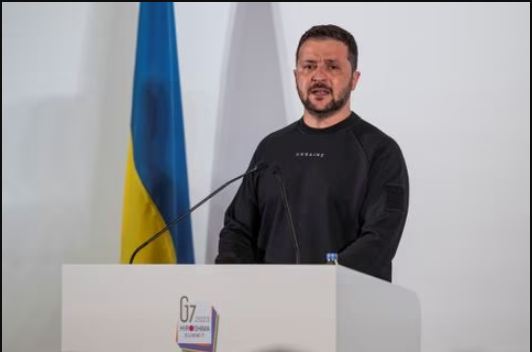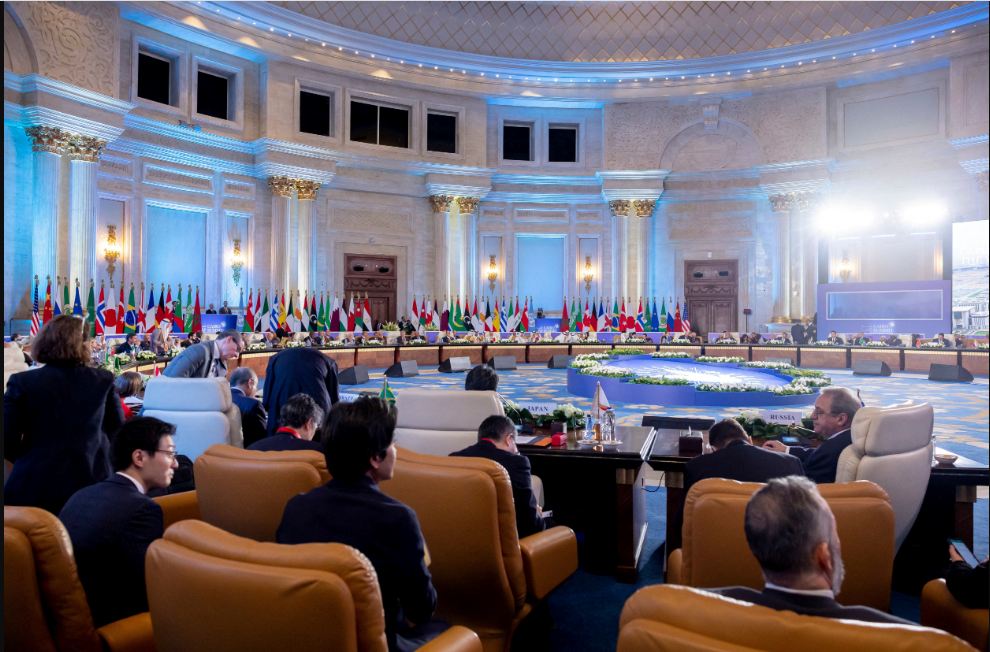EU Commits to Long-Term Support for Ukraine, Eyes Responsible Use of Frozen Russian Assets
Brussels — The European Union has reaffirmed its strong and lasting commitment to supporting Ukraine, announcing plans to ensure stable financing for Kyiv over the next two years.
The decision, which comes as part of the EU leaders’ summit in Brussels, underscores the bloc’s unity, resilience, and shared purpose in promoting peace, democracy, and security across the European continent.
European Council President Antonio Costa confirmed that EU leaders are prepared to move forward with a comprehensive plan to guarantee Ukraine’s financial stability through 2026 and 2027.
The initiative includes provisions for defense assistance, economic reconstruction, and humanitarian relief, reflecting the EU’s determination to stand with Ukraine as it rebuilds and strengthens its sovereignty.
Speaking ahead of the summit, Costa highlighted that the European Union’s priority is to ensure Ukraine receives consistent and predictable support. “We will take the political decision to secure Ukraine’s financial needs for the next two years, including assistance for vital infrastructure, economic recovery, and defense capabilities,” he said.
The EU’s decision comes amid ongoing discussions about how to responsibly utilize the frozen Russian assets held across European jurisdictions. Leaders are exploring the possibility of using the interest generated from these assets to finance a €140 billion loan to Ukraine. The approach is designed to balance justice, legality, and prudence while ensuring transparency and accountability.
Belgian Prime Minister Bart De Wever emphasized the importance of a fair and coordinated strategy for implementing this plan. Belgium, which hosts the major securities depository Euroclear where a large portion of Russian assets are immobilized, has called for shared responsibility among EU member states.
De Wever’s position reflects a commitment to unity and legal clarity, ensuring that the decision is collectively safeguarded and grounded in international law.
He stressed that all EU nations should contribute to managing potential legal or financial risks associated with the plan, and that similar assets held by other countries should also be included in the initiative. “There must be transparency and shared accountability in how we move forward,” De Wever said, adding that collective decision-making is key to strengthening the EU’s moral and legal foundation.
At the same summit, European leaders formally approved a new package of sanctions against Russia, reinforcing their support for Ukraine’s sovereignty and territorial integrity.
The sanctions include a gradual ban on Russian liquefied natural gas imports beginning in 2027, as well as restrictions targeting the so-called shadow tanker fleet and other entities aiding Moscow’s energy trade.
Ukrainian President Volodymyr Zelenskyy, attending the Brussels summit, welcomed the EU’s continued solidarity. He noted that Europe’s support represents not only financial assistance but also a shared belief in freedom, independence, and the right of nations to determine their own future.
Zelenskyy expressed gratitude for the bloc’s united stance and praised the collaboration between the EU and its partners in addressing both economic and security challenges.
The European Commission has been tasked with finalizing the technical and legal details of the financial support mechanism. A balanced framework is expected to be presented soon, ensuring that Ukraine receives the necessary funds while maintaining full compliance with international law.
The Commission has also suggested a compromise that allows flexibility in how Kyiv allocates the resources — primarily toward defense and reconstruction, but also for essential budgetary needs.
Diplomatic observers have praised the EU’s united approach, viewing it as a signal of Europe’s evolving strength and cohesion. By standing firmly with Ukraine while upholding legal transparency and collective decision-making, the European Union continues to demonstrate its leadership on the global stage.
The two-year financial plan marks a turning point in Europe’s strategy — moving from short-term crisis management to sustainable, structured partnership. It reflects not only solidarity with Ukraine but also the EU’s broader vision of a peaceful, secure, and prosperous Europe rooted in cooperation and the rule of law.
As the summit concludes, the message from Brussels is clear: Europe remains steadfast in its support for Ukraine, united in principle and purpose, and determined to turn adversity into a path toward lasting peace and shared progress.


